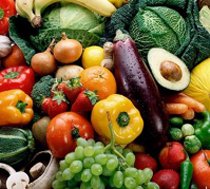 Most scientists agree that many factors related to our environment, diet, lifestyle and genes are the cause of cancer. Your ability to fight cancer depends on your detoxification capabilities, the strength of your immune system, DNA repair capacity, your diet, lifestyle and age. A good detox diet can certainly boost your body’s ability to prevent cancer.
Most scientists agree that many factors related to our environment, diet, lifestyle and genes are the cause of cancer. Your ability to fight cancer depends on your detoxification capabilities, the strength of your immune system, DNA repair capacity, your diet, lifestyle and age. A good detox diet can certainly boost your body’s ability to prevent cancer.
Although there is much discussion over the effect of chemicals that get into our bodies from food, water, air and things we apply to our skins it is agreed that cancer is caused by the chemicals manufactured in our bodies.
These are free radicals, oxygen radicals and electrophiles. Their production is stimulated by the toxic chemicals that we are exposed to every day.Your body’s ability to deal with these chemicals determines if you will get cancer or not.
You body has two detox systems. Both must function well if you want to prevent cancer and have good health.
1. The Xenobiotic Detox System
A xenobiotic is a chemical which is found in the body but which is not normally produced or expected to be present in it
This detox system consists of many enzyme reactions that disarm toxic chemicals which get into our bodies from food, water and air and neutralizes dangerous substances produced in our bodies.
Examples of toxic chemicals in the environment are:
- Smoke from tobacco products
- Charcoal cooked meats
- Overcooked meats
- Toxins in foods
- Organic solvents
- By-products of combustion
- Pesticides & herbicides
- Metals
How a detox diet can help to prevent cancer
A good detox diet consists of foods that contain substances that are know to support the Phase 1 and Phase II detox pathways in the liver.
D-glucarate
People who have a diet high in fruits and vegetables have high levels of D-Glucarate which lowers the levels of the enzyme B-glucuronidase that can increase the risk of cancer.
High levels of this enzyme have been found in people who are exposed to industrial chemicals, tobacco smoke, environmental pollutants and nitrosamines (found in many foodstuffs, especially beer, fish, fish byproducts, and meat and cheese products preserved with nitrite pickling salt).
D-Glucarate is high in fruit such as apples, cherries, grapefruit and apricots and cruciferous vegetables such as cabbage, broccoli, Brussels sprouts, watercress, alfalfa, turnips, and bean sprouts.
Researchers have shown that D-Glucarate can directly stop the growth of cancer cells.
Sulfur (Sulphur)
Cruciferous vegetables also contain sulfur compounds which have a effect on the detox pathways. They appear to inhibit some phase 1 detox enzymes and stimulate Phase II. Phase 1 detox can result in some chemicals becoming more toxic if they cannot be quickly detoxed by Phase II.
Glucobrassicin is one that converts to Indole-3-carbinol (I3C) when the vegetable is chewed, chopped or cooked. I3C stimulates the detox enzymes in the gut and liver which makes it valuable for protection against carcinogens (substances that can cause cancer).
Garlic contains allyl sulphides which also have an effect on Phase II detoxification and is known to protect against cancer.
Apigenin
The flavanoid Apigenin found in apples, onions, celery, parsley, artichokes, onions and basil can help to increase glutathione and important substance used for detox. It also has important antioxidant properties.
Some people have imbalanced detox pathways where Phase 1 is overactive and Phase II is underactive. Specific foods and nutritional supplements can help enhance Phase 2 detox and improve the balance.
2. The Antioxidant Detox System
The antioxidant detox system also known as the “Cancer Detox System” deactivates and destroys free radicals, electrophiles and oxygen radicals that can cause serious damage to your cells if not controlled.
Free radicals can be generated as by products of normal metabolic processes in the body, inflammation from strenuous work or exercise and even taking in too many calories.
Free radicals can alter DNA which could lead to cancer. Excessive free radicals in the body have been linked to Parkinson’s Disease, atherosclerosis, emphysema, sickle cell anemia, stroke, premature aging and cataracts.
Flavanoids
Fresh fruits and vegetables are high in potent flavonoid antioxidants which destroy free radicals. They also help to recycle Vitamin C and E which also have antioxidant effects in the body. The flavanoids, proanthocyanidins and anthocyanins, also increase glutathione in liver cells.
Lycopene & lutein
Tomatoes, red grapefruit, apricots, guava and watermelon are rich in lycopene and lutein. These two substances are very potent antioxidants that prevent damage to your cells by free radicals.
Most studies have found that these two antioxidants also have anti-cancer properties.
Calorie reduction
A detox diet tends to be lower in calories because many high calorie foods are excluded. Studies on animals have shown that decreasing calorie intake can enhance the detox system.
There is a reduction of free radical production and an increase in the detoxification of toxic chemicals when calories are restricted protecting against cancer.
A detox diet high in fruits and vegetables, whole grains and legumes is key to preventing cancer by supporting detoxification and counteracting the effects of toxic chemicals.
The Definitive Detox Diet shows you how.




[…] of the most common excuses I hear for not continuing to eat more vegetarian food after following a detox diet is that healthy eating seems to be such a chore and people simply run out of ideas of what to […]